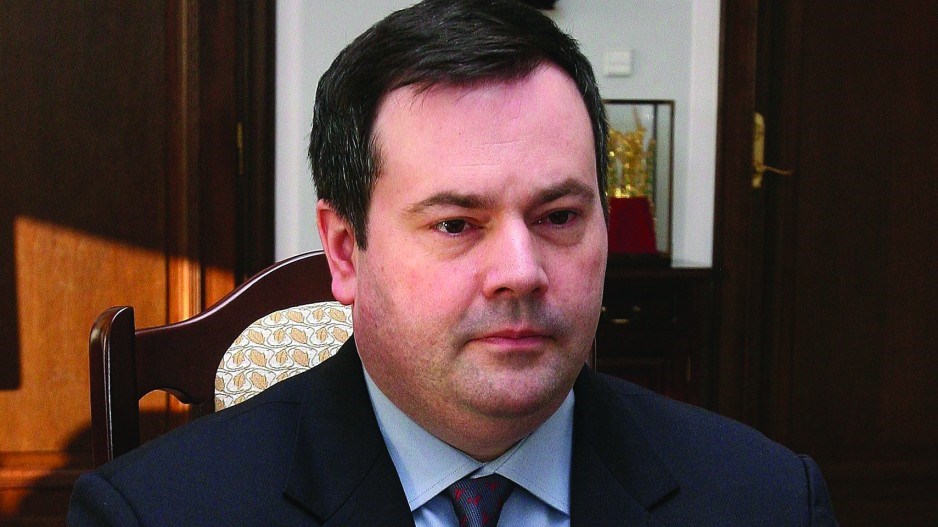Sometime before the next Western Premiers’ Conference in June, Alberta’s new premier, Jason Kenney, plans to visit B.C. to speak face to face with B.C. Premier John Horgan about gas prices and pipelines.
It has been suggested that Horgan and Kenney could avert what could be a very ugly war that would damage both provinces’ economies if Horgan backs off on his opposition to the Trans Mountain pipeline’s expansion in exchange for more refined petroleum products from Alberta, which could lower gas prices in B.C.
While the pipeline’s expansion could result in more Alberta gasoline flowing to B.C., which would lower prices somewhat, one petroleum analyst says high gas prices in B.C. are part of a “new reality” that British Columbians might need to learn to live with.
B.C.’s high gas prices are largely due to its high tax rates and its low-carbon fuel standard, said Jason Parent, an analyst for the Kent Group, a petroleum business intelligence firm.
“Part of higher prices in that region are just simply a new reality and some of it is related to those regulations,” Parent said.
The two premiers were trying to make nice with each other last week, although simmering beneath their talk of having already had a “respectful and diplomatic” phone conversation is the potential for a nasty dust-up.
The Alberta premier’s first act last week upon being sworn in as premier was to proclaim Bill 12, which Kenney has threatened to use to cut off B.C.’s supply of gasoline and oil – at a time when the Lower Mainland is staggering under record-high gasoline prices.
Kenney said he will not use Bill 12 unless he has to.
“We will look at other ways of responding before we get this strongest tool in our tool box, which is Bill 12,” Kenney said. “So we do not intend to use this right now. We are simply communicating our willingness to do so, should we face a long-term campaign of obstruction.”
While he took some comfort from Kenney’s assurances, Horgan’s first reaction to Bill 12’s proclamation was to have government lawyers file two court applications in Alberta aimed at quashing the legislation.
In addition to high taxes and a lower-carbon fuel standard, B.C.’s record-breaking gas prices result from a lack of local refining capacity and pipeline capacity.
It has been worsened lately by an increase in crude exports moving through the pipeline and a subsequent decrease in refined fuel products from Alberta.
Citing data from 2017 and 2018, Horgan said oil for export via the Trans Mountain pipeline increased to 21% of capacity in 2018 from 9% the year before, which resulted in a drop in refined fuel products – from 37% of the Trans Mountain pipeline’s capacity to just 27%.
That means B.C. would have had to rely on increased imports from Washington state, which would partially account for B.C.’s high gas prices.
Marvin Shaffer, adjunct professor at Simon Fraser University’s School of Public Policy, recently wrote that Washington is a “marginal source of supply.” Those suppliers end up setting the price, and Alberta refiners follow suit, knowing they can charge higher prices, based on the price Washington suppliers set.
Marc Lee, an economist for the Canadian Centre for Policy Alternatives, recently compared wholesale prices between B.C. and other provinces. He concluded that the margins are much higher for B.C., which suggests price gouging by refiners.
But Parent said Lee’s analysis missed the impact B.C.’s low-carbon fuel standard has on the wholesale price. He estimated that it adds $0.14 to $0.15 per litre to the province’s wholesale price.
“It looks like high refining margins, but it’s related to the cost of compliance for the low-carbon fuel standard in B.C.,” Parent said.
Kenney last week argued that an expanded Trans Mountain pipeline might address B.C.’s high gas prices. The new line that would be built would be dedicated to heavy crude oils. That would theoretically free up more space on the existing line for more refined products from Alberta, which would lower the price of gas in B.C.
It’s been estimated that an additional 50,000 barrels per day of capacity could be opened on the existing Trans Mountain pipeline for refined fuel products. The problem is that there is no guarantee that will happen.
“What goes into that [pipeline] is determined by the nomination process,” Parent said.
“If they expand the line, but a whole bunch of other people are nominating for space for crude oil, and no one for additional refined products, it may not increase the amount of space allocated for refined products. Chances are it will … but it’s not a guarantee.”
Horgan said he plans to ask Prime Minister Justin Trudeau to address B.C.’s high gas price problem. But when asked if he might be willing to back off on his Trans Mountain pipeline expansion opposition in exchange for more refined fuels from Alberta, he made it clear he would not.
“Those who want to turn Burrard Inlet into an export terminus, exclusively, that’s not something that’s in the interest of British Columbia,” he said.




